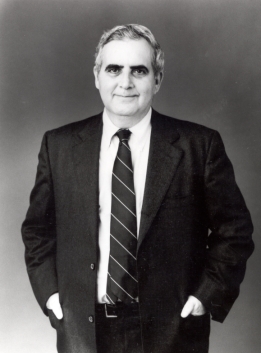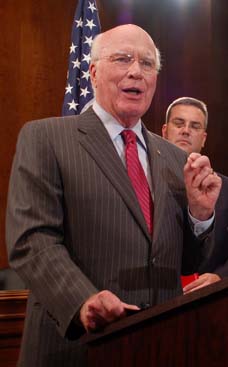
New agencies like the CWA tend to perform the best. They attract people dedicated to their mission, instead of those just looking for a job. Because they are usually designed to meet an immediate need, they impart a sense of drama and urgency to their workers. Bad bureaucratic habits have not had time to establish themselves. As a participant in the birth of the Peace Corps, I remember that, instead of the long meetings and lengthy memoranda that make boredom and inaction so characteristic of too many mature agencies, decisions were often made by quick phone calls and informal gatherings in the hallways. So I urge Obama to not only refuse to be afraid of adding employees to the government, but not to fear starting new agencies. Franklin Roosevelt was constantly criticized for his alphabet soup of agencies-e.g., the CWA, the PWA, and the WPA. But they made the New Deal work and won World War II. Forget the Republican propaganda that the New Deal didn't work; between 1933 and 1940, it cut unemployment by more than half by all estimates, and by more than two-thirds according to many. And don't let them kid you that the New Deal was a failure saved only by World War II. Military spending did not increase until the second half of 1940, and by then wages had increased by 25 percent in just the preceding year in the state of West Virginia alone. "Washington Monthly" Founder and Editor Emeritus Charles Peters was Director of Evaluation for the Peace Corps under founding Peace Corps Director Sargent Shriver.
Charles Peters writes: As a participant in the birth of the Peace Corps, I remember that, instead of the long meetings and lengthy memoranda that make boredom and inaction so characteristic of too many mature agencies, decisions were often made by quick phone calls and informal gatherings in the hallways
Tilting at Windmills
By Charles Peters
The only thing we have to fear is fear of big government
Obama's stimulus promises to create or save three to four million jobs in the next two years. In the fall of 1933, a New Deal program created four million jobs in two months.
Timothy Noah and I described the miracle of the Civil Works Administration in a recent article in Slate ("Wrong Harry," January 26). The CWA was the brainchild of Harry Hopkins, who received FDR's blessing for the idea in mid-November. By mid-December, he had employed two million people, and by mid-January four million.
Hopkins had two secrets that seem not to be understood by the Obama team. First, he put the new workers on the federal payroll, while Obama says that 90 percent of his jobs will be in the private sector. And instead of dotting every i and crossing every t to ensure accountability before workers were hired, Hopkins risked mistakes by moving fast. He still got accountability, however, by sending experienced journalists to visit his projects in the field in order to give him quick feedback. This enabled the CWA to fix its problems fast. In New York City, for example, a chaotic program became a showcase in just a couple of months.
Hopkins had seen how another program, run along the same lines as Obama's stimulus plan, had moved much too glacially to meet the desperate needs of 1933. That program, the Public Works Administration, was designed to work through private contractors, and took care to dot every i and cross every t to avoid any scandal. The PWA would ultimately do great good. But by the fall of 1933, it had barely put a hundred thousand people to work.
The presiden't stimulus bill requires "fixed-price" contracts. They usually take six months to negotiate. And Obama's desire to scandal-proof the process would seem likely to take even longer. Of course, the bill has a "use it or lose it within 120 days" provision, but all that guarantees is a lot of pleas for extensions or contracts that are not signed, meaning work is actually not begun, until day 119. That's why I hope he will consider Harry Hopkins's approach. Remember, Hopkins did not say, "Damn the torpedoes, full speed ahead." What he did say was, "Full speed ahead, but watch out for the torpedoes and change course when necessary."
When Obama boasts that 90 percent of the stimulus jobs will be in the private sector, and Timothy Geithner speaks disparagingly of government's ability to run an enterprise, they display the old Democratic fear of being stuck with a big-government label by the Republicans.
This, of course, is understandable. Every Wall Street Journal op-ed page seems to feature pieces like the recent "Beware of the Big-Government Tipping Point" by Peter Wehner and Paul Ryan. Similar sentiments are a constant refrain of Republican oratory in Congress, and on conservative talk shows.
And the fear is not new. Indeed, Franklin Roosevelt was so frightened by the risk he had taken that he canceled the CWA as the summer of 1934 approached and the congressional election campaign got under way. But once the Democrats won a great victory in that election, Roosevelt relaunched his CWA, rechristened as the Works Progress Administration, and provided jobs for more than eight million Americans.
Obama should learn from Roosevelt's experience, and not let himself be paralyzed by fear of Republican attack. If putting the country back to work means putting more people on the government payroll, then so be it. When jobs like teaching Head Start, repairing roads, and cleaning up the environment can be filled more quickly by hiring people directly instead of by contract, Obama should not hesitate to have the government do the hiring. Nor should he hesitate to face the need of many government agencies for more employees.
Congressional conservatives have starved the budget of any agency that threatens effective regulation of the private sector. News of one outrage after another reminds us of the need for more and better government employees to protect the economy from the abuses of Wall Street, to guard the safety of food and drugs, to prevent defective products from reaching the marketplace, to keep the environment from being contaminated, to make sure that disease is effectively controlled, and to guarantee that workers are being provided with decent working conditions and fair compensation.
Government needs don't stop there. AmeriCorps needs more volunteers. The U.S. Army needs at least a hundred thousand additional troops to relieve the strain Iraq and Afghanistan have imposed on far too many soldiers, who are now enduring their third or fourth combat tours.
To be sure, more government is not always the answer, and some government agencies are just plain bad. Constant criticism of the bureaucracy is necessary-indeed, such criticism has been a staple of this magazine since its inception-to keep government on its toes. But government can work-even agencies that have been bad can become good, and sometimes very quickly. Consider the contrast between the U.S. Navy's performance at Pearl Harbor in December 1941 and at Midway in June 1942. The reverse is also possible-the U.S. Army's performance in Iraq went from the sixty days of triumph of its conquest of Saddam Hussein's forces to four years of failure in the occupation-and then back to relative success in the past year. Or take the Federal Emergency Management Agency-not so good in 1992, getting better from 1993 to 2001 under James Lee Witt, and then becoming much worse under Brownie.
A few agencies stay effective for long periods, most notably the U.S. Postal Service through the 1930s, '40s, and '50s. Throughout my forty-eight years in Washington, the Office of Management and Budget has maintained a very high level of competence among its staff, even though its political leadership has misused it from time to time. Also, for various but fairly lengthy periods, the Internal Revenue Service, the Federal Trade Commission, some divisions of the Department of Justice, and even, for a while in the past, the Securities and Exchange Commission have all established traditions of excellence.
New agencies like the CWA tend to perform the best. They attract people dedicated to their mission, instead of those just looking for a job. Because they are usually designed to meet an immediate need, they impart a sense of drama and urgency to their workers. Bad bureaucratic habits have not had time to establish themselves. As a participant in the birth of the Peace Corps, I remember that, instead of the long meetings and lengthy memoranda that make boredom and inaction so characteristic of too many mature agencies, decisions were often made by quick phone calls and informal gatherings in the hallways.
So I urge Obama to not only refuse to be afraid of adding employees to the government, but not to fear starting new agencies. Franklin Roosevelt was constantly criticized for his alphabet soup of agencies-e.g., the CWA, the PWA, and the WPA. But they made the New Deal work and won World War II. Forget the Republican propaganda that the New Deal didn't work; between 1933 and 1940, it cut unemployment by more than half by all estimates, and by more than two-thirds according to many. And don't let them kid you that the New Deal was a failure saved only by World War II. Military spending did not increase until the second half of 1940, and by then wages had increased by 25 percent in just the preceding year in the state of West Virginia alone.













